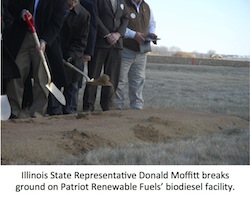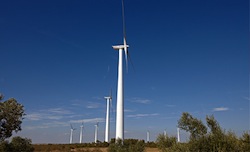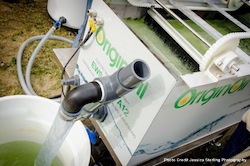 A California biodiesel refinery has received a $4.9 million state grant to expand its biodiesel operation. Biodiesel Magazine reports Community Fuels picked up the California Energy Commission grant for its Port of Stockton biorefinery.
A California biodiesel refinery has received a $4.9 million state grant to expand its biodiesel operation. Biodiesel Magazine reports Community Fuels picked up the California Energy Commission grant for its Port of Stockton biorefinery.
“Community Fuels’ biorefinery was specifically designed to allow for multiple phases of expansion,” said Lisa Mortenson, co-founder and CEO of Community Fuels. “This important grant will enable our team to expand our production capabilities to meet the anticipated demand for low carbon fuels expected as a result of the California low carbon fuel standard (LCFS).”
Chris Young, director of operations for Community Fuels, said, “Through years of dedicated effort we successfully commissioned and optimized our biorefinery which has a reputation for producing one of the highest quality biomass-based diesel fuels in the nation. That work will contribute greatly to our ability to install and commission this next phase of expansion. With this new project, we will maintain our focus on quality and compliance.”
“In the initial phase of construction, Community Fuels invested heavily to have a robust, onsite laboratory,” said Steven Sabillon, laboratory manager. “We are the first in the nation to secure both BQ-9000 laboratory and producer certifications. These existing analytical capabilities will be relied upon during the installation and commissioning efforts associated with the expansion.”
The grant was funded through California’s Alternative and Renewable Fuel Vehicle Technology Program.









 Our latest ZimmPoll asked the question, “ Which winter farm shows/events are you planning to attend?”
Our latest ZimmPoll asked the question, “ Which winter farm shows/events are you planning to attend?”